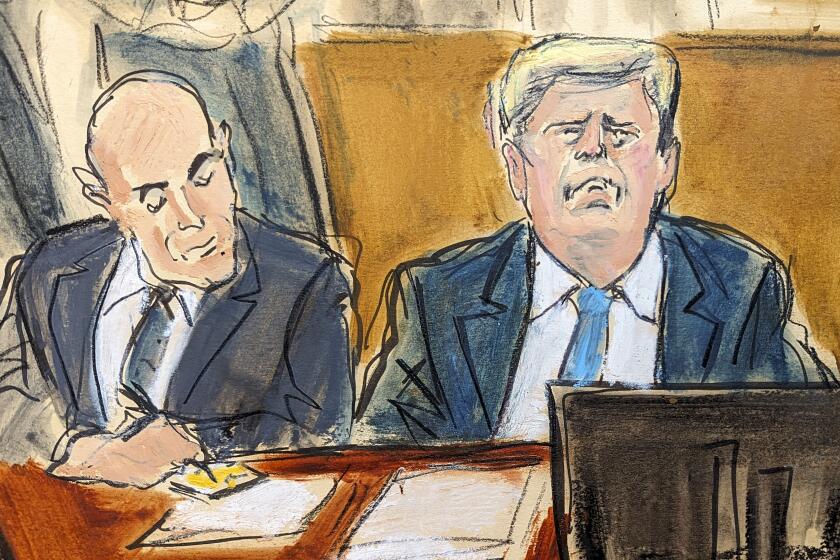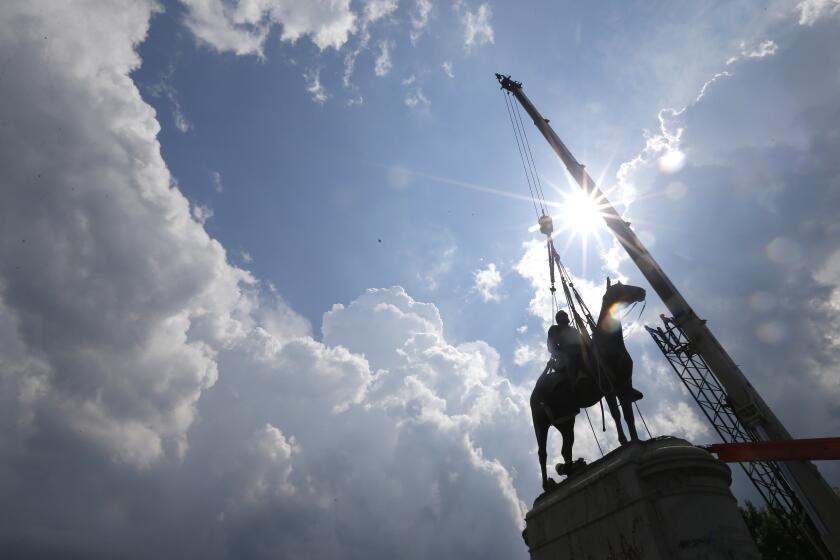South Africa Blacks Blame Pretoria for Machel Crash
Black political leaders here blamed the South African government Thursday for the airplane crash that killed President Samora M. Machel of Mozambique earlier this week, going as far as to accuse the government of shooting the aircraft down.
Although the black leaders offered no supporting evidence, their allegations appear certain to join the long list of grievances that South Africa’s black majority has against the country’s white-led minority government, and they could rekindle the recently diminished political violence.
Aubrey Mokoena, secretary of the Release Mandela Committee, accused the government of shooting down Machel’s twin-jet airliner as it was attempting to land Sunday night at Maputo, the Mozambican capital, and he warned that blacks would avenge Machel’s death.
“We say, ‘Pretoria, take a good at your hands because in our perception they are dripping with blood and they symbolize war,’ ” Mokoena told a rally of 1,000 black and white students at the University of the Witwatersrand here. “We say, ‘Pretoria, you have a stinking and treacherous track record of destabilizing the subcontinent.’ We believe the words of the pilot who was navigating that aircraft and who said they were shot at.
‘A Planned Attack’
“We believe that the ‘accident’ was not an accident caused by human error or some natural cause, but it was a planned attack,” Mokoena said, blaming the South African government, right-wing guerrillas belonging to the Mozambique National Resistance, as well as the Reagan Administration.
Mokoena’s charges were echoed by other black leaders for whom the 53-year-old Mozambican president was both a symbol of liberation and an ally in their struggle against apartheid, South Africa’s system of racial separation and minority white rule.
At a smaller memorial meeting organized by the black-consciousness Azanian People’s Organization, Nkosi Molala, the organization’s president, suggested that Machel had been killed as a step toward South Africa’s installation of a right-wing puppet regime in Mozambique. Machel himself had told Mozambican newsmen 10 days ago that he feared assassination by South Africa, Molala recounted, and Pretoria’s recent threats against him appeared to confirm this intention.
Inquiry Starts Today
The preliminary investigation of the crash, which killed Machel and 33 others, will begin today with the arrival at the accident site near South Africa’s border with Mozambique of teams of aviation specialists from Mozambique and the Soviet Union, which manufactured the Tupolev 134 airliner and provided the crew for Machel.
Although Vladimir Novosselov, the flight engineer, reportedly said earlier that he believed the plane had been shot down, speculation here and in Mozambique on reasons for the crash has concentrated on possible pilot errors, the bad weather and perhaps confusing radio signals.
Visited at a military hospital in Pretoria on Thursday by Elize Botha, wife of South African President Pieter W. Botha, Novosselov, who was at the controls when the plane crashed, denied he was to blame. He described his crash-landing of the aircraft in the border hills between South Africa and Mozambique as “a wonderful achievement” that saved the lives of 10 of the people on board.
Speaking in Russian to reporters, Novosselov refused to be drawn out further on the cause of the crash or to repeat his earlier suggestion that it had been shot down, saying that such questions should be left to the investigators.
But in Moscow, the official Soviet news agency Tass said that pilot error was not a factor in the crash and that South Africa appeared to be covering up a possible attack on the plane by guerrillas belonging to the Mozambique National Resistance, which is fighting the Marxist government in Maputo and has received South African assistance.
“Some of the high-ranking South African officials concluded, with suspicious haste, that the crash has been due to the aircraft losing its bearings because of pilot error,” Tass said. “There is also the hypothesis, however, that the presidential airliner, which was descending to land and thus flying at a low altitude, could have been brought down by a missile fired by terrorists from the so-called Mozambique National Resistance.”
More to Read
Start your day right
Sign up for Essential California for news, features and recommendations from the L.A. Times and beyond in your inbox six days a week.
You may occasionally receive promotional content from the Los Angeles Times.






